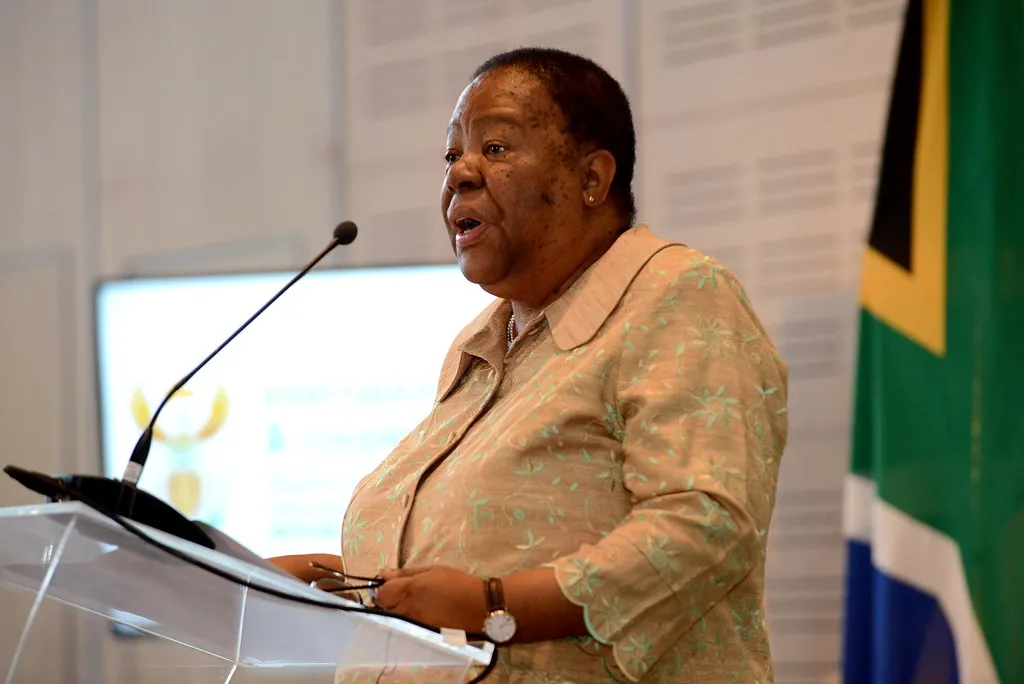March 19, 2024 (EIRNS)—South Africa’s Minister of International Relations and Cooperation Grace Naledi Pandor spoke today at the Carnegie Endowment for International Peace, with a rare mixture, for Washington, of statecraft, dignity, and morality.
The format involved her responding to questions from Carnegie’s career diplomat, senior vice president for policy research Dan Baer, who clearly viewed Pandor and South Africa through an old lens, of a secondary role in geopolitical affairs. Asked first to rate American political leadership, Pandor said: “I rate it at 6 for executive and below that for the legislature…. I’m not sure the legislators have an understanding of South Africa…. I think they make conclusions about South Africa’s international relations, without necessarily speaking to us. And this is very troubling…. If I were to make a statement about their policy, I would at least speak to us first, and attempt to understand, the cause, if any, might be of an emerging dissonance.”
Pandor offered that “we don’t need more multilateral bodies” to replace the United Nations, but the UN needs to be reformed to be “more than a monitoring body…. [W]e need to consider the [UN] capacity for peace enforcement. We have to find a way of protecting innocent people when there’s a conflict.”
She found fault with the structure of the UN Security Council, saying that India and other nations should have similar powers as the five permanent members, U.S., U.K., France, China, and Russia. “I think we need to look at the composition and the functioning, and the capacity associated with having a Security Council. I think we should have African presence as permanent members…. I also think East Asia should have a presence. I think India being so big and not being a part of the permanent members is an odd reality….”
Later, she objected to Baer’s characterization that “the BRICS invited six new members, four of which are authoritarian regimes.” Pandor didn’t flinch: “Who makes these judgments?” The audience responded with laughter and mild applause. “This assessment that you’re making...” Baer interrupted her, saying: “You would challenge the premise that Iran, for example, is an authoritarian regime?” Pandor still wasn’t going to flinch: “Is it your role to make that judgment?” Baer responded: “I don’t think it’s me, uh, saying that. It’s widely regarded by most people....” Pandor went on: “I don’t know if they are an authoritarian regime. I do know that—” but Baer interrupted his guest once again: “The minister of South Africa does not know if the regime in Iran is authoritarian?”
Pandor: “I don’t have that definition in my logbook. I do have a concern about women, and their rights in Iran, and this is something I have discussed with the government of Iran, particularly my colleague, the foreign minister…. And to use our [South Africa’s] earned democratic success to say this actually works … because if we stop talking with everybody, because we define them in a particular way, I think that the models we have adopted would not have any meaning…. We use our post-apartheid progress as a way of exemplifying for others that we think this is a good practice to adopt.”
Baer commented: “It’s difficult to make the argument that South Africa’s example is available to people in Iran or China, or in Saudi Arabia….”
Pandor: “We’re not a perfect democracy by any means…. We have huge problems of poverty ... which derive from our history … which we have not been able to fully address as an emerging democracy. But I do believe that there is a strength in being able to speak with everyone, because if you close off, I don’t think you achieve anything.”



